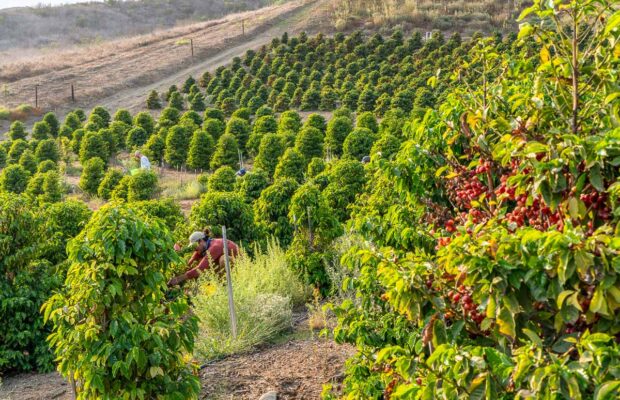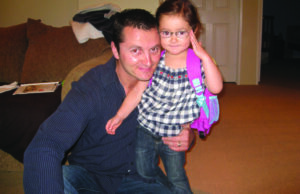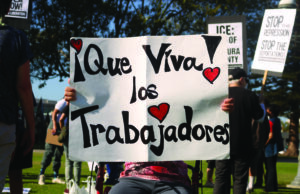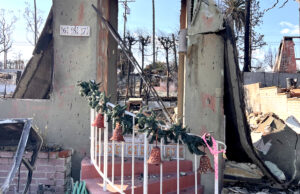ASG teacher spills the beans on family coffee business

In addition to teaching Physical Education, ASG and coaching, Chris Soury helps with harvesting and running tours at his wife’s family’s farm in Santa Paula. “When I say my family is involved in farming to my students, it’s a pretty big surprise because you don’t normally think about [teacher’s lives outside of school],” Soury said.
The Rancho Filoso farm has been in Lisa Soury’s family for four generations; Lisa Soury works as the director of operations. While the farm grows citrus and avocados, it specializes in two high quality coffee beans: the Geisha and the Caturra Rojo.
The coffee orchard is a relatively new harvest of six years, because the family was looking for ways to diversify the crops. “It’s not just your normal coffee you would get at Starbucks; it is a specialty coffee,” Chris Soury said. “The coffee that is grown on the farm scores very high. It’s kind of like wine. There are different scales of coffee.”
The Caturra Rojo bean is sold for up to $75 an ounce and the Geisha is sold for up to $400 a cup. It is the extensive picking process that ensures the coffee is sold for what it is worth.
The Rancho Filoso farm was established in the late 1870’s and is one of the Sharp’s eight farms. “We were one of the first 5 coffee farms in California,” Lisa Soury said. “My kids love going there. It’s something special for them; there’s that family history with the place so my kids really connect with that,” Chris Soury said.
During the pandemic, families were looking for outdoor activities so Lisa Soury started providing farm tours to add family interest to Rancho Filoso. “The tours include history, agriculture and getting to taste the coffee cherry. I have a really cool family history that is tied to Ventura county, and I love sharing it!” Lisa Soury said. “The harvest and tour season will begin this June going for $50 a person for a two hour tour.”
One of the farm’s newest endeavors is sustainability. Rather than discarding the cherry fruit around the coffee bean during harvest season, Lisa Soury seized the opportunity to utilize the cherry in a profitable way by making Cascara Jelly from the outer portion of the fruit. “Most people probably don’t even know that coffee is actually grown in a cherry, and normally that cherry just goes to waste,” Chris Soury said.
Lisa Soury recommends the jelly on pancakes, scones and grilled cheese as it is a versatile topping. “The jelly is made like any other jelly, but the cherry fruit is naturally caffeinated, so the jelly contains some caffeine too,” Lisa Soury said. It is sold at Ragamuffin Coffee Roasters, as well as on California Coffee Colective’s website and Instagram.
In addition to expanding their distribution of the Cascara Jelly, the Soury’s hope is that the popularity of their tours will continue to grow as they are a great outdoor activity for get-togethers with family and friends. “Right now the cherry fruit is green, but there is a lot coming for next year’s crop. We are always trying to stay ahead of what the next big thing is and we hope it is this,” Chris Soury said.



